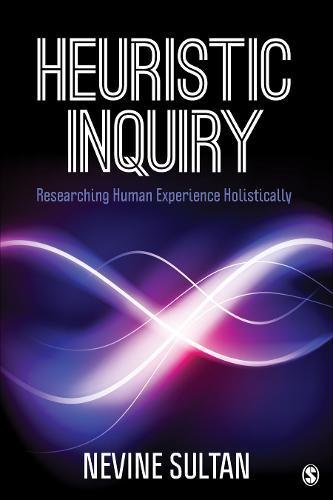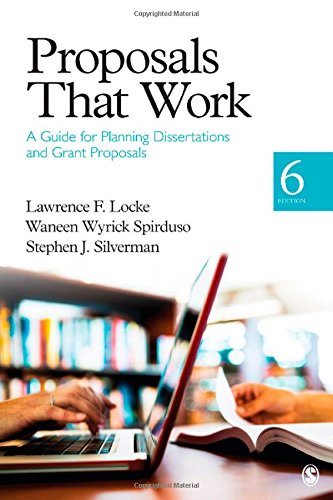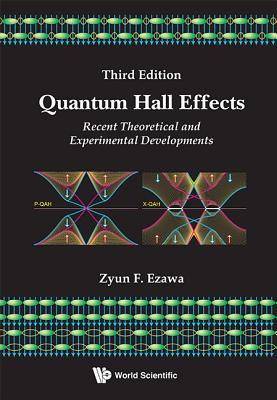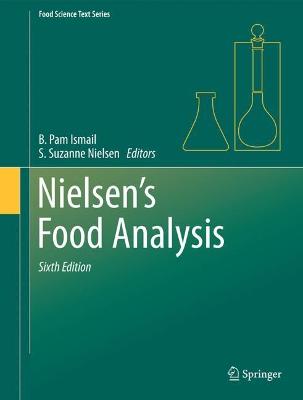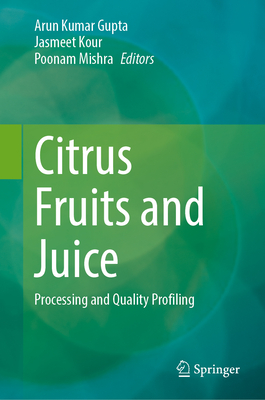图书简介
This new text presents heuristic inquiry as a unique phenomenological, experiential, and relational approach to qualitative research that is also rigorous and evidence-based. The author describes a distinguishing perspective of this research that treats participants not as subjects of research, but rather as co-researchers and partners in an exploratory process marked by genuineness and intersubjectivity.
Preface \\ Acknowledgments \\ About the Author \\ Chapter 1: What Is Heuristic Inquiry, Anyway? \\ A Brief Recent History \\ The Purpose of Heuristic Inquiry \\ Essential Feature \\ • Exercise 1.1. Sensing Into and Expressing a Rough Understanding of Heuristic Inquiry \\ Processes and Phases \\ Limitations of Heuristic Inquiry \\ Closing Reflections \\ Chapter 2: Locating Heuristic Inquiry Within Contemporary Qualitative Research \\ Relationship to Phenomenology \\ Bricolaging with Similar Qualitative Approaches \\ Grounded Theory \\ Essential and Distinguishing Features \\ Bricolaging Grounded Theory With Heuristic Inquiry \\ Narrative Research \\ Essential and Distinguishing Features \\ Bricolaging Narrative Research With Heuristic Inquiry \\ Feminist Research \\ Essential and Distinguishing Features \\ Bricolaging Feminist Research With Heuristic Inquiry \\ Closing Reflections \\ • Exercise 2.1. Exploring the Labyrinth \\ Chapter 3: Philosophical and Theoretical Foundations of Heuristic Inquiry \\ Why Do We Learn About Theory? \\ Heuristic Inquiry as an Empirical Process \\ • Exercise 3.1. Exploring the Subjectivity8Objectivity Continuum \\ Heuristic Inquiry as Qualitative Research \\ Heuristic Inquiry as Social Constructivism \\ Ontological Assumptions \\ Epistemological Assumptions \\ Axiological Assumptions \\ Methodological Assumptions \\ Rhetorical Assumptions \\ Heuristic Inquiry as “Phenomenologically Aligned” \\ Philosophers Whose Work Inspired Heuristic Inquiry \\ Edmund Husserl \\ Martin Buber \\ Carl Rogers \\ Abraham Maslow \\ Michael Polanyi \\ Eugene Gendlin \\ Maurice Merleau-Ponty \\ Closing Reflections \\ • Exercise 3.2. Exploring Other Ways of Being and of Knowing \\ Chapter 4: Heuristic Processes and Phases \\ The Seven Processes of Heuristic Inquiry \\ Identifying With the Focus of Inquiry \\ • Exercise 4.1. An Empty Chair Experiment to Facilitate Identifying With the Focus of Inquiry \\ Self-Dialogue \\ Tacit Knowing \\ Intuition \\ Indwelling \\ Focusing \\ The Internal Frame of Reference \\ • Exercise 4.2. Six-Step Focusing Exercise to Clear an Inner Space \\ The Six Phases of Heuristic Inquiry \\ Initial Engagement \\ Immersion \\ Incubation \\ Illumination \\ Explication \\ Creative Synthesis \\ The Heuristic Phases in Action \\ Maintaining a Heuristic Attitude During the Research Journey \\ • Exercise 4.3. Needs Self-Assessment Exercise \\ Closing Reflections \\ Chapter 5: Heuristic Research Design \\ Becoming Aware of a Topic and Formulating the Research Question(s) \\ Conducting the Literature Review \\ Timing Your Literature Review \\ Reviewing the Literature \\ Preparing for the Study \\ Writing a Heuristic-Friendly IRB Proposal \\ Creating a Set of Guidelines for the Study \\ Creating Generic Content and Forms \\ Selecting, Inviting, and Securing Co-Researchers \\ General Sampling Considerations \\ Sample Size \\ Building Rapport and Trust \\ Closing Reflections \\ Chapter 6: Heuristic Data Collection, Organization, and Analysis \\ Data Collection \\ Interviews \\ Preparing for the Interviews \\ Embodied Relational Interviewing \\ Disruptions in Flow \\ Time and Structure Considerations \\ Where and How \\ Researcher and Co-Researcher Artifacts \\ Researcher Journals \\ Winding Down Data Collection \\ Data Organization and Management \\ Immersion8Incubation8Reflexivity \\ Creating Verbatim Transcripts \\ Data Analysis: Theme Illumination and Identification \\ Following Clear Procedures \\ Honoring Content and Context \\ Deciphering Potential Themes \\ Organizing Themes According to Research Questions \\ Maintaining Discipline \\ Data Analysis: Theme Explication \\ Individual Depictions \\ Composite Depictions \\ Exemplary Portraits \\ Creative Synthesis \\ Closing Reflections \\ Chapter 7: Relationality, Reflexivity, and Meaning-Making \\ Relationality \\ Shared Experiential Learning \\ Connecting, Disconnecting, and Reconnecting \\ Empathy, Resonance, and Intersubjectivity \\ Honoring Difference and Conflict \\ Negotiating Power and Privilege \\ Advancing Empowerment, Agency, and Social Justice \\ Reflexivity \\ Approaching Reflexivity Holistically \\ Evaluating Values, Beliefs, Biases, and Attitudes \\ • Exercise 7.1. Exploring Our Own and Others’ Values \\ Locating Oneself Within the Research Process \\ Demystifying the Role of the Researcher \\ Using the Journal as a Reflexive Tool \\ Meaning-Making \\ • Exercise 7.2. Exploring a Personal Dilemma Using the Reflexive Journal \\ Closing Reflections \\ Chapter 8: Evaluating the Research: A Collaborative Process \\ A Primer on Heuristic Evaluation \\ Defining Rigor and Trustworthiness/Goodness \\ Evaluation Criteria \\ Credibility \\ Transferability \\ Dependability \\ Confirmability \\ Evaluation Strategies \\ Evaluating the Integrity of Your Heuristic Study \\ Heuristic Evaluation as a Shared Experience \\ The Importance of Reflexive Leadership in Evaluation \\ Closing Reflections \\ Chapter 9: Writing a Living Manuscript: An Embodied Relational Approach \\ Components of a Heuristic Manuscript \\ Title \\ Abstract \\ Keywords \\ Introduction and Clear Articulation of Topic and Research Questions \\ Theoretical Framework \\ Rationale for the Study \\ Comprehensive but Concise Literature Review \\ Method \\ Co-Researchers \\ Materials and Procedure \\ Data Collection and Analysis \\ Findings \\ Discussion \\ Limitations \\ Conclusions and Future Directions \\ Embodied Relational Writing: Balancing Rigor With Intriguing Writing Style \\ • Exercise 9.1. Experimenting With Embodied Relational Writing \\ Promoting Social Justice, Action, and Transformation \\ Writing a Publishable Heuristic Manuscript \\ Closing Reflections \\ Chapter 10: Ethics of Heuristic Research \\ Understanding Ethics \\ Core Ethical Principles and Codes \\ Facets of a Heuristic Study That May Prompt Ethical Concerns \\ Informed Consent \\ Research Methodology and Design \\ Relational Boundaries With Co-Researchers \\ Transparency \\ Researcher Competence \\ Addressing Emergent Ethical Dilemmas \\ Consulting Discipline-Related Ethical Codes \\ Using an Ethical Decision-Making Model \\ Engaging Researcher Reflexivity \\ • Exercise 10.1. Exploring and Addressing Emergent Ethical Dilemmas in Heuristic Research \\ The Perils of Researching Sensitive Topics: Maintaining Researcher Well-Being \\ Closing Reflections \\ Chapter 11: Universal Applications of Heuristic Inquiry: Bridging Research and Living Experience \\ Using Heuristic Inquiry Formally in Various Disciplines \\ Education \\ Political Science and Government \\ Health Care \\ Conflict Transformation \\ Counseling and Psychotherapy \\ Engaging Heuristic Inquiry Informally \\ Closing Reflections \\ Chapter 12: An Ending8Beginning \\ Appendices \\ Appendix A: Sample Cover/Invitation Letter \\ Appendix B: Sample Demographic Information Form \\ Appendix C: Sample Informed Consent Form \\ Appendix D: Sample Instructions for Interview Meeting \\ Appendix E: Sample Semi-Structured Interview Protocol \\ Appendix F: Sample Semi-Structured Interview Protocol With Examples \\ Appendix G: Preparing for and Recording Interviews (Sample) \\ Appendix H: Open-Ended Relational Probing and Prompting \\ Glossary \\ References \\ Index
Trade Policy 买家须知
- 关于产品:
- ● 正版保障:本网站隶属于中国国际图书贸易集团公司,确保所有图书都是100%正版。
- ● 环保纸张:进口图书大多使用的都是环保轻型张,颜色偏黄,重量比较轻。
- ● 毛边版:即书翻页的地方,故意做成了参差不齐的样子,一般为精装版,更具收藏价值。
关于退换货:- 由于预订产品的特殊性,采购订单正式发订后,买方不得无故取消全部或部分产品的订购。
- 由于进口图书的特殊性,发生以下情况的,请直接拒收货物,由快递返回:
- ● 外包装破损/发错货/少发货/图书外观破损/图书配件不全(例如:光盘等)
并请在工作日通过电话400-008-1110联系我们。
- 签收后,如发生以下情况,请在签收后的5个工作日内联系客服办理退换货:
- ● 缺页/错页/错印/脱线
关于发货时间:- 一般情况下:
- ●【现货】 下单后48小时内由北京(库房)发出快递。
- ●【预订】【预售】下单后国外发货,到货时间预计5-8周左右,店铺默认中通快递,如需顺丰快递邮费到付。
- ● 需要开具发票的客户,发货时间可能在上述基础上再延后1-2个工作日(紧急发票需求,请联系010-68433105/3213);
- ● 如遇其他特殊原因,对发货时间有影响的,我们会第一时间在网站公告,敬请留意。
关于到货时间:- 由于进口图书入境入库后,都是委托第三方快递发货,所以我们只能保证在规定时间内发出,但无法为您保证确切的到货时间。
- ● 主要城市一般2-4天
- ● 偏远地区一般4-7天
关于接听咨询电话的时间:- 010-68433105/3213正常接听咨询电话的时间为:周一至周五上午8:30~下午5:00,周六、日及法定节假日休息,将无法接听来电,敬请谅解。
- 其它时间您也可以通过邮件联系我们:customer@readgo.cn,工作日会优先处理。
关于快递:- ● 已付款订单:主要由中通、宅急送负责派送,订单进度查询请拨打010-68433105/3213。
本书暂无推荐
本书暂无推荐
